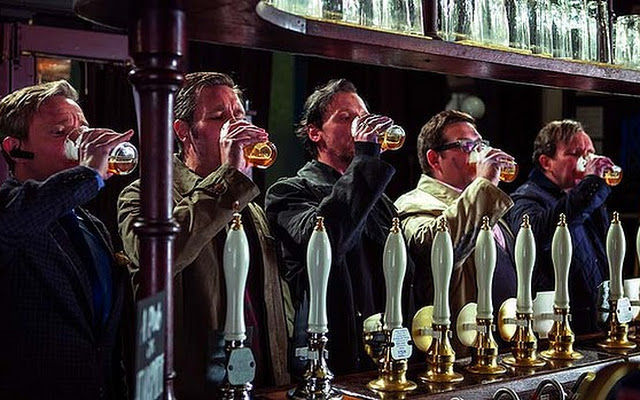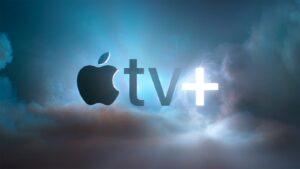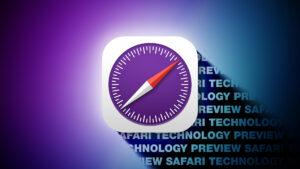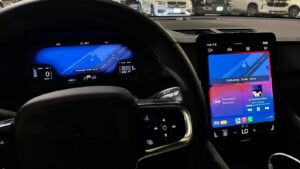British comedian inspires linguistic study of slang synonyms for getting drunk

The lads from Edgar Wright’s 2013 sci-fi comedy World’s End know when to start drinking and get “totally and utterly carparked.” (credit: Universal Pictures)
British comedian Michael McIntyre has a standard bit in his standup routines concerning the many (many!) slang terms posh British people use to describe being drunk. These include “wellied,” “trousered,” and “ratarsed,” to name a few. McIntyre’s bit rests on his assertion that pretty much any English word can be modified into a so-called “drunkonym,” bolstered by a few handy examples: “I was utterly gazeboed,” or “I am going to get totally and utterly carparked.”
It’s a clever riff that sparked the interest of two German linguists. Christina Sanchez-Stockhammer of Chemnitz University of Technology and Peter Uhrig of FAU Erlangen-Nuremberg decided to draw on their expertise to test McIntyre’s claim that any word in the English language could be modified to mean “being in a state of high inebriation.” Given their prevalence, “It is highly surprising that drunkonyms are still under-researched from a linguistic perspective,” the authors wrote in their new paper published in the Yearbook of the German Cognitive Linguistics Association. Bonus: the authors included an extensive appendix of 546 English synonyms for “drunk,” drawn from a variety of sources, which makes for entertaining reading.
There is a long tradition of coming up with colorful expressions for drunkenness in the English language, with the Oxford English Dictionary listing a usage as early as 1382: “merry,” meaning “boisterous or cheerful due to alcohol; slight drunk, tipsy.” Another OED entry from 1630 lists “blinde” (as in blind drunk) as a drunkonym. Even Benjamin Franklin got into the act with his 1737 Drinker’s Dictionary, listing 288 words and phrases for denoting drunkenness. By 1975, there were more than 353 synonyms for “drunk” listed in that year’s edition of the Dictionary of American Slang. By 1981, linguist Harry Levine noted 900 terms used as drunkonyms.




